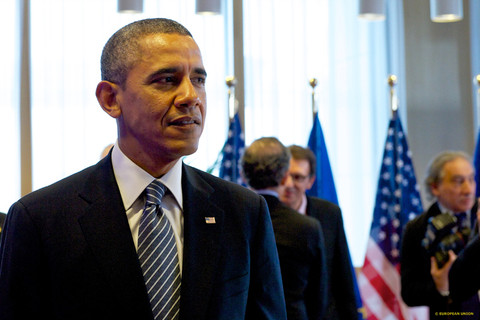The controversial Keystone XL pipeline, which would have bisected the United States carrying climate-killing tar sands from Canada, was rejected by US President Obama in November.
Obama cited the pipeline’s projected contribution to climate change in deeming it not in the national interest.
The pipeline would have opened up global markets to exports of tar sands – one of the world’s dirtiest fuels.
Blocking the pipeline was a major victory for the climate movement, putting the interests of people ahead of corporations.
On 6 January this year, TransCanada initiated international trade proceedings against the US government over its decision to block the pipeline.
Under the investment chapter of the North American Free Trade Agreement (NAFTA), TransCanada is demanding USD$15 billion in compensation, from taxpayers’ money.
The vast majority of the claim is based on missed future profits, as the company has only invested USD$2.4 billion so far. To put this in perspective, in 2014 the US government only provided USD$430 million for climate-vulnerable countries to mitigate the impacts of climate change.
Investor-state dispute settlements (ISDS)
In effect, a decision made by a democratically elected government, in the interest of both people and the environment, is being challenged by a corporation interested only in its projected profits.
In addition, the case will be heard in a private international tribunal, composed of unelected corporate lawyers.
The case adds to the long list of past and ongoing investor-state dispute settlements (ISDS), a mechanism included in thousands of international trade agreements, and under growing criticism in the context of the negotiations for the EU-US Transatlantic Trade and Investment Partnership (TTIP), the Transpacific Trade Partnership (TPP), and the EU-Canada trade agreement.
Famous examples include the energy giant Vattenfall challenging Germany’s decision to phase out nuclear energy, LonePine Resources disputing Quebec’s introduction of a precautionary moratorium on the controversial technique of fracking, and Ethyl achieving the reversal of Canada’s ban on the toxic chemical MMT.
The ISDS not only allows foreign investors to sue host governments for financial compensation in private tribunals, but may create a chilling effect on legislators keen to protect the public interest, due to the threat of lawsuits and financial losses.
This latest case sends American, Canadian and EU decision-makers a clear signal: trade and investment deals, including investor-state dispute settlement mechanisms, are an enormous threat to the climate.
There can no longer be any doubt that they threaten democracy, and benefit only a handful of corporate players.
Once corporations are entitled to special privileges without obligations, they will stop at nothing to secure profits at the expense of the environment and essential public safeguards.
Therefore, it’s time to put a stop to international trade deals like TTIP, TPP and the EU-Canada trade agreement, and put the interests of people and the planet before the profits of big business.
Source Article from https://www.popularresistance.org/ttip-climate-change-kxl-pipeline-oil-and-gas/
Related posts:
Views: 0
 RSS Feed
RSS Feed

















 January 9th, 2016
January 9th, 2016  Awake Goy
Awake Goy 
 Posted in
Posted in  Tags:
Tags: 
















